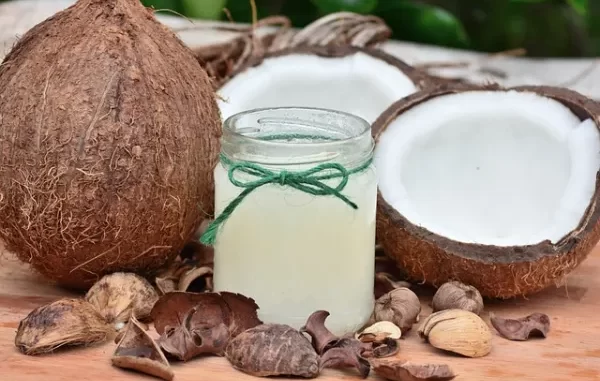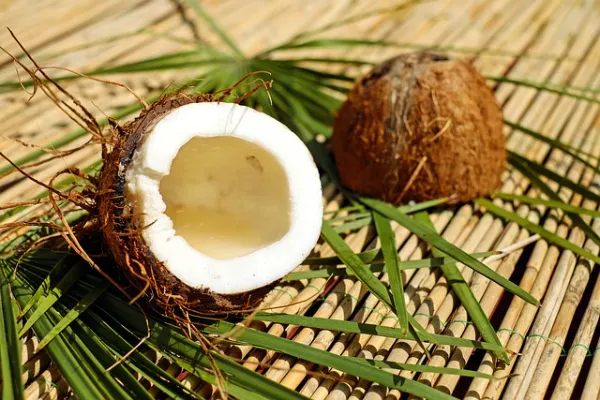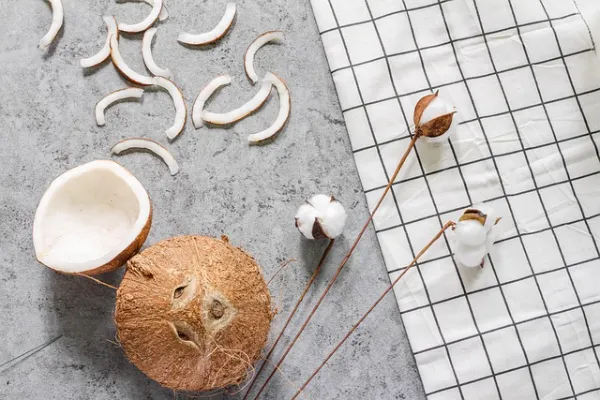
Coconuts: Nature’s Versatile Nutty Nuggets of Fun!
Coconuts, with their rough exterior and refreshing interior, have long captivated humans with their versatility and mystique. But beyond their delicious flesh and thirst-quenching water, these tropical treasures hold a treasure trove of surprising facts that will leave you saying, “Wow, I didn’t know that!” So, grab a piña colada and settle in as we crack open the coconut of curiosity and unveil its fascinating secrets. We present a few fun facts about coconuts.
Not a Nut, But a Drupe (and a Traveler)
Despite their hard shell and nutty flavor, coconuts are technically drupes, the same category as cherries and olives. And they’re born adventurers! Coconuts can float for months in saltwater, thanks to a waterproof husk and air pockets, traveling vast distances to colonize new islands.
Nature’s Built-In Sippy Cup
Young coconuts, filled with their sweet, electrolyte-rich water, have a soft spot at the base called the “eye.” This handy opening acts like a built-in sippy cup, allowing thirsty animals (and humans!) to access the refreshing liquid inside.
Coconut Powerhouse: More Fun Facts About Coconuts Follow
Coconuts are nutritional powerhouses packed with fiber, vitamins, minerals, and healthy fats. Coconut water, with its natural electrolytes, is often touted as a sports drink replacement, while the flesh is a delicious source of energy and healthy fats. Here are more fun facts about coconuts:
Beyond the Beach
Coconuts are incredibly versatile. Their meat can be eaten fresh, dried, or grated into coconut milk, a popular ingredient in curries and tropical dishes. The oil is used in cooking, cosmetics, and even biofuels, while the husk can be turned into bowls, brushes, and even charcoal.
Coconut Cracked by Monkeys

In some parts of the world, like Thailand, monkeys are trained to climb coconut trees and harvest the fruit. These nimble acrobats can crack open coconuts with impressive skill, throwing them to the ground for humans to collect.
Ancient Uses
Coconuts have been humans favorites for millennia. Archaeological evidence suggests they were traded and consumed as early as 7,000 years ago. In some cultures, coconuts are symbols of prosperity and hospitality, often offered as gifts and used in traditional ceremonies.
Growing Tall and Strong
Coconut palm trees can grow up to 100 feet tall and live for over 80 years. They’re remarkably resilient, able to withstand hurricanes, and thrive in coastal environments. Their roots even help prevent soil erosion, making them valuable for coastal ecosystems.
A World of Coconut Varieties
There are over 200 varieties of coconuts! Some are small and sweet, perfect for drinking water, while others are larger and have thicker meat, ideal for eating or making oil. Different varieties are also used for making copra, the dried coconut flesh used for oil production.
Coconut Oil Myths
Coconut oil has gained popularity in recent years, but there are some myths surrounding its health benefits. While it’s true that coconut oil contains some healthy fats, it’s also high in saturated fat, so moderation is key.
Sustainable Future for Coconuts

The coconut industry is growing rapidly, and with responsible practices, it can be a sustainable source of income and food for many communities. Initiatives like organic farming and fair trade practices help ensure that coconut farmers and the environment are protected.
The next time you crack open a coconut, remember it’s more than just a delicious treat. It’s a symbol of resilience, resourcefulness, and the amazing diversity of the natural world. And from its adventurous travels to its surprising versatility, the coconut never ceases to amaze and delight. Go forth, explore the world of coconuts, and crack open your own coconut of curiosity!
I hope these fun facts about coconuts have left you feeling as refreshed and energized as a cold sip of coconut water! Read more here.






Leave a Reply